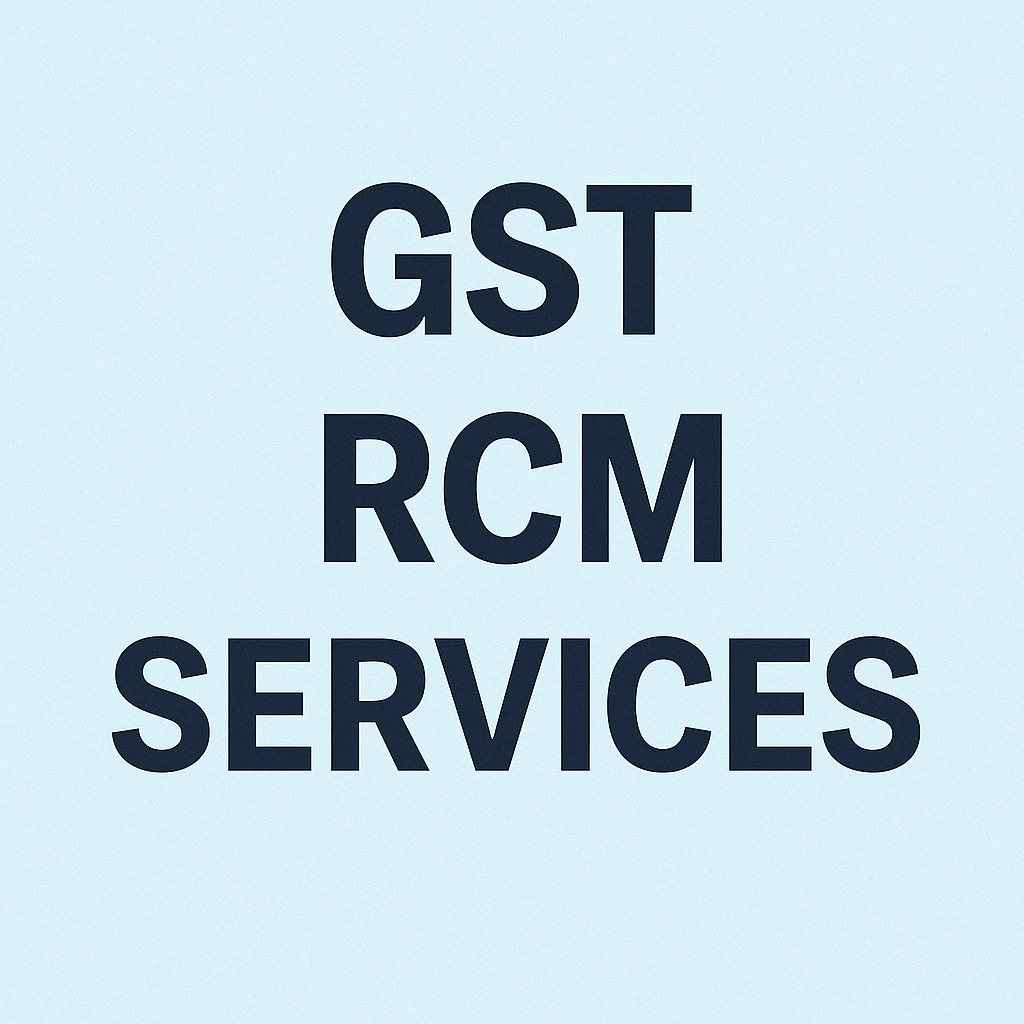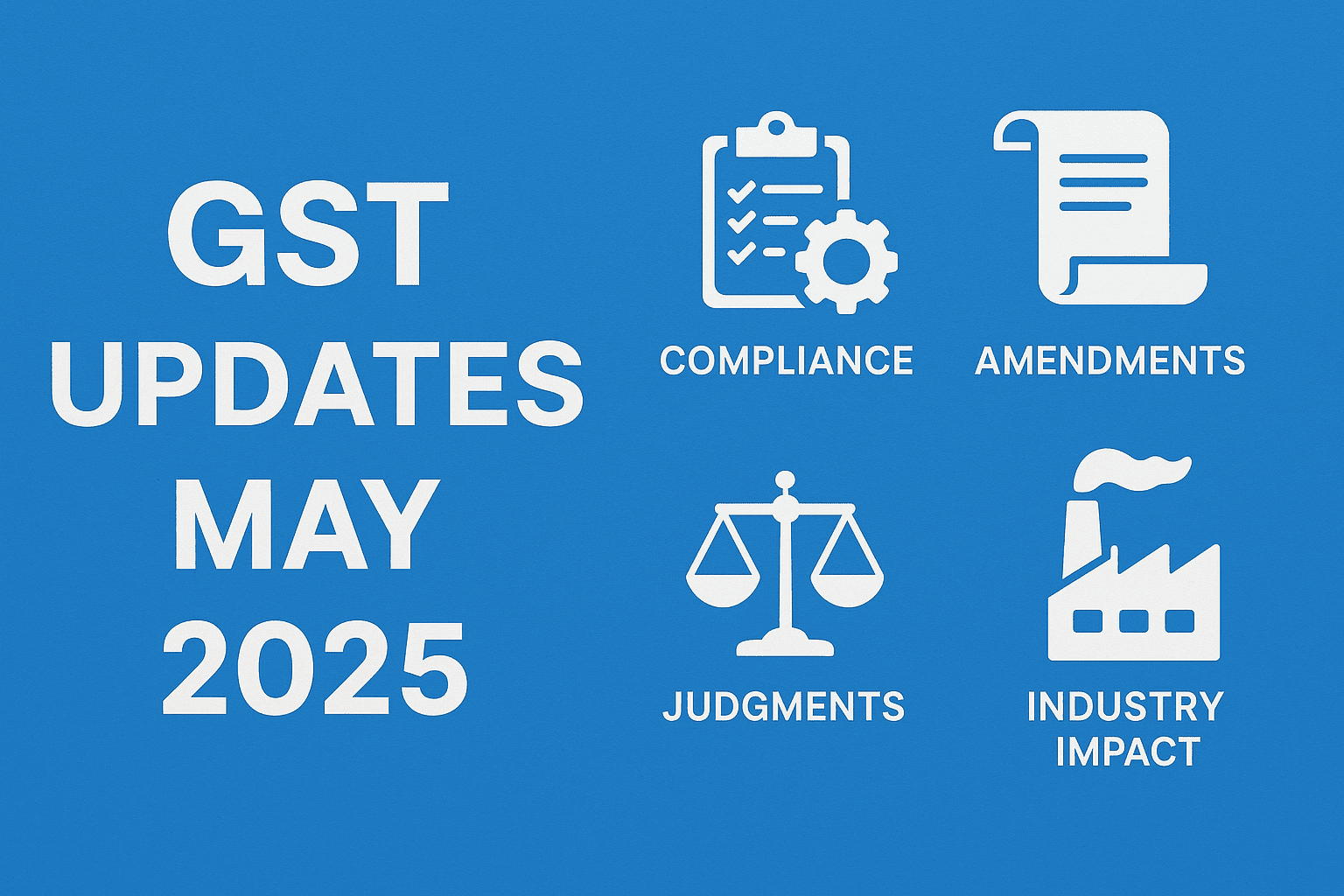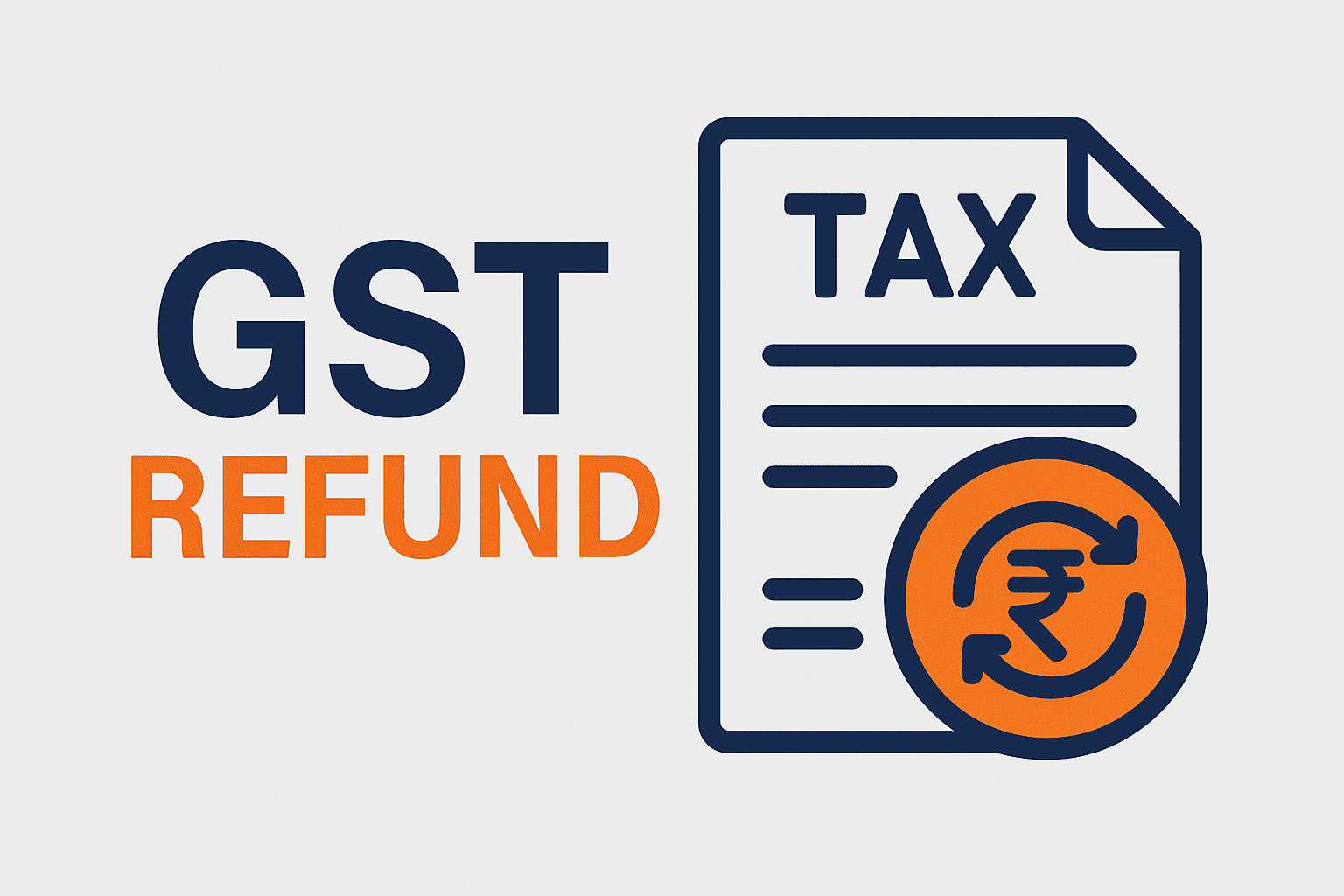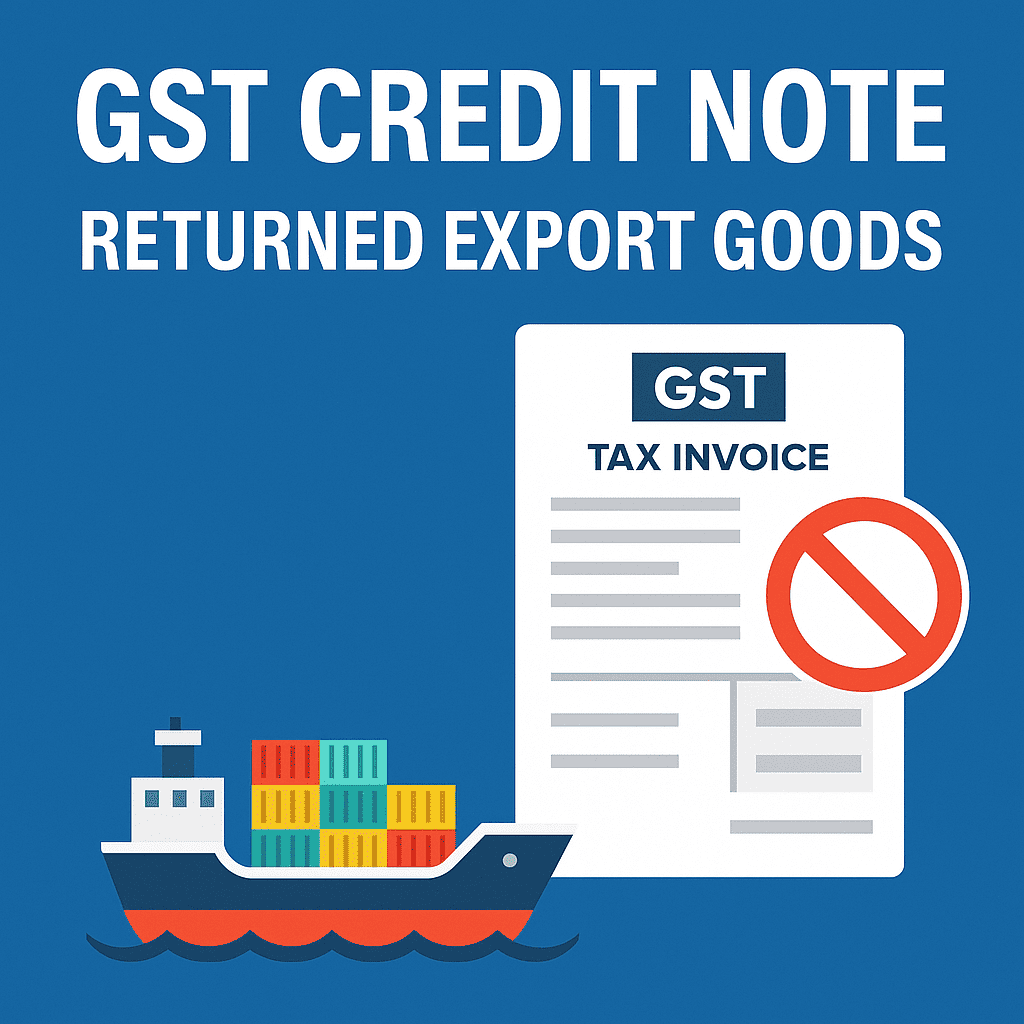In the Goods and Services Tax (GST) regime, the Reverse Charge Mechanism (RCM) shifts the tax liability from the supplier to the recipient of goods or services. Unlike the regular forward charge, where the supplier is liable to pay GST, under RCM, the recipient is required to pay the applicable GST directly to the government.
RCM is governed by Section 9(3), 9(4), and 9(5) of the Central Goods and Services Tax Act, 2017 (CGST Act) for intra-state supplies and Section 5(3), 5(4), and 5(5) of the Integrated Goods and Services Tax Act, 2017 (IGST Act) for inter-state supplies.
Relevant Legal Provisions
| Section |
Description |
| Section 9(3) |
Specifies categories of supply (notified by Govt.) on which tax shall be paid by the recipient under RCM. |
| Section 9(4) |
Applies RCM on supply by an unregistered dealer to a registered person (restricted now). |
| Section 9(5) |
E-commerce operator liable to pay GST on specified services. |
| Section 5(3) of IGST Act |
Parallel to Section 9(3) for inter-state supplies. |
| Section 5(4) of IGST Act |
Parallel to Section 9(4) for unregistered to registered supply. |
Categories of Supply under RCM
A. RCM on Services [Section 9(3) of CGST Act]
| S. No. |
Description of Service |
Supplier |
Recipient |
GST Rate |
| 1 |
Goods Transport Agency (GTA) services for transportation of goods |
GTA |
Any registered person (if not paying 12% GST voluntarily) |
5% (No ITC) |
| 2 |
Legal Services by advocate or firm of advocates |
Individual Advocate or Firm |
Business entity |
18% |
| 3 |
Sponsorship Services |
Any person |
Body corporate or partnership firm |
18% |
| 4 |
Services by Arbitral Tribunal to business entity |
Arbitral Tribunal |
Business entity |
18% |
| 5 |
Services of Director to company |
Director (non-employee) |
Company or body corporate |
18% |
| 6 |
Services by Government or Local Authority (excluding renting, etc.) |
Central/State Govt or LA |
Business entity |
Varies |
| 7 |
Renting of Motor Vehicle (if service provider not paying GST @12%) |
Individual/Firm/HUF |
Body Corporate |
5% or 12% |
| 8 |
Security Services (not by company) |
Any person other than company |
Registered person (not Govt) |
18% |
| 9 |
Services of Recovery Agent |
Recovery agent |
Bank / NBFC / Financial Institution |
18% |
| 10 |
Transportation of goods by vessel from outside India to Indian port |
Non-resident |
Importer (under IGST Act, Sec 5(3)) |
5% IGST |
| 11 |
Services by Insurance Agent |
Insurance agent |
Insurance company |
18% |
| 12 |
Services by Music Composer / Artist / Author by way of transfer or license of copyright |
Individual artist/composer |
Publisher, Music company, Producer |
12% / 18% |
| 13 |
Renting of residential property for business purposes (w.e.f. 18.07.2022) |
Landlord (any person) |
Any registered person (tenant) |
18% |
| 14 |
Services by a director to a company in any capacity other than employee |
Director |
Company or body corporate |
18% |
| 15 |
Sponsorship to a body corporate or partnership |
Any person |
Body corporate or firm |
18% |
| 16 |
Writers/Authors transferring rights to publishers |
Author |
Publisher |
12% / 18% |
| 17 |
Tenancy Rights transferred to developer for redevelopment (by outgoing tenants) |
Tenant |
Developer |
Varies |
📝 Notes:
- These services are governed by Notification No. 13/2017 – CT (R) dated 28.06.2017, as amended from time to time.
- Where applicable, the recipient must issue a self-invoice and pay the tax under RCM.
- The input tax credit (ITC) of GST paid under RCM is available (subject to eligibility).
B. RCM on Goods [Section 9(3) of CGST Act]
| Sl. No. |
Goods Description |
Supplier |
Recipient |
Notification |
| 1 |
Cashew nuts (not shelled) |
Agriculturist |
Registered Person |
Notification No. 4/2017-CT (R) |
| 2 |
Bidi Wrapper Leaves |
Agriculturist |
Registered Person |
Notification No. 4/2017-CT (R) |
| 3 |
Silk yarn |
Any person |
Registered Person |
Notification No. 4/2017-CT (R) |
| 4 |
Used vehicles, seized/confiscated goods sold by Govt. Dept |
Govt. Dept |
Registered Person |
Notification No. 4/2017-CT (R) |
C. RCM under Section 9(4)
Originally, Section 9(4) required GST payment under RCM for any supply of goods/services by an unregistered person to a registered person. However, it was deferred and then modified.
Current Position:
- Applicable only if the recipient is a promoter and the supply is for construction purposes.
- Limited to specified goods/services such as cement and capital goods.
| Sl. No. |
Particulars |
Applicable GST |
Notification |
| 1 |
Cement purchased by Promoter from unregistered dealer |
RCM @28% |
Notification No. 07/2019-CT (R) |
| 2 |
Capital Goods used in construction |
Applicable rate |
Notification No. 07/2019-CT (R) |
D. RCM under Section 9(5): E-Commerce Operators
The Government has notified certain services, where the e-commerce operator (ECO) is deemed the supplier and required to pay GST:
| Sl. No. |
Service Description |
ECO Responsible |
Notification |
| 1 |
Passenger transport by radio-taxi, motor cab, etc. |
Uber, Ola, etc. |
Notification No. 17/2017-CT (R) |
| 2 |
Accommodation services by unregistered suppliers |
Oyo, Airbnb |
Notification No. 17/2017-CT (R) |
| 3 |
Housekeeping services |
UrbanClap, etc. |
Notification No. 17/2017-CT (R) |
| 4 |
Restaurant services (except premises having > INR 20 L turnover) |
Zomato, Swiggy |
Notification No. 17/2021-CT (R) |
Input Tax Credit (ITC) on RCM
- Recipient can claim ITC of GST paid under RCM subject to eligibility and only after payment is made in cash (not from electronic credit ledger).
- ITC claim should be supported with self-invoice and payment voucher.
Compliance Requirements
| Compliance Area |
Description |
| Self-Invoice |
Required where the supplier is unregistered and recipient is liable to pay GST under RCM. |
| Payment Voucher |
Issued at the time of payment to the supplier under RCM. |
| GSTR-3B |
Tax under RCM is reported in Table 3.1(d). |
| GSTR-1 |
Not applicable for RCM supplies as supplier is not liable to file. |
| Books of Accounts |
RCM entries must be separately maintained. |
Common Examples
- A company hiring legal services from a lawyer → RCM applicable.
- Builder purchasing cement from an unregistered supplier → RCM applicable under Section 9(4).
- Business entity hiring goods transport by road (GTA) → RCM applicable unless GTA opts to pay 12%.
- Director receiving sitting fees from a company → Company liable to pay under RCM.
Conclusion
The Reverse Charge Mechanism (RCM) is a vital compliance provision under GST, intended to widen the tax base and improve accountability. It is essential for businesses to identify RCM transactions and discharge the liability on time to avoid penalties. Maintaining proper documentation, issuing self-invoices, and timely filing of returns are crucial to ensure seamless compliance.




 Urukundu
Urukundu
